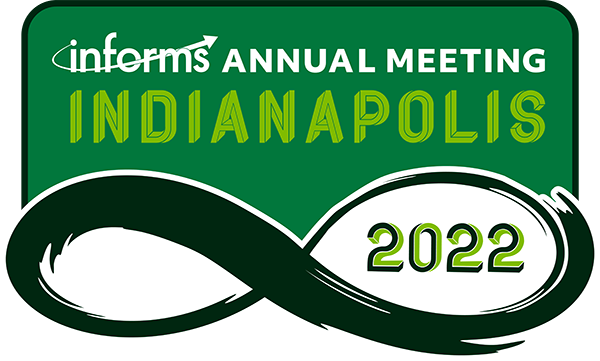What is the change to the format of the Annual Meeting?
INFORMS’22 is planned to be the first fully in person conference of the post-COVID era. As before, the Meeting will run on a Saturday to Wednesday schedule. While Tutorials will run on Saturday, technical sessions will be held on Sunday, Monday, and Tuesday. Wednesday will be dedicated to community outreach activities.
What are the biggest reasons for not organizing any technical sessions on Wednesday?
Attendee surveys consistently show that Wednesday is an orphan day. In an effort to avoid presentations on Wednesdays, speakers pressure Session Chairs to schedule their talks on earlier days. (In most cases, such a desire is justified as speakers, who are on a MWF teaching schedule, do not wish to miss two classes in a row back at their university due to conference attendance). As a result, Wednesday’s feature sessions with up to six talks with no coherent theme. In addition, these sessions are sparsely attended, significantly compromising the quality of the conference.
Will this change result in there being fewer available sessions?
No. INFORMS’22 will feature the same total number of sessions compared with previous in person Annual Meetings. To maintain the same capacity at a comparable level, INFORMS will feature five sessions each day (e.g., on Sunday there will be SA, SB, SC, SD, and SE session slots). This is done by converting the lunch break into a technical session. In that time slot, attendees can grab lunch and see a keynote or attend a poster session.
How do you ensure the quality of sessions?
The quality of the sessions will be enhanced by offering three distinct but consistent formats:
- Full presentations: 4 or 5 talks in a 75-minute session
- Flash talks: 10 5-minute presentations in a 75-minute session (with an optional 20-minute archival video)
- Poster Presentations and competition (with an optional 20-minute archival video)
How do we ensure that each subdivision will receive the number of sessions they request?
As before, the conference will seek to attract as many presenters/attendees as possible. With the help of Organizing Committee Session Chairs (and in communication with Cluster Chairs and the respective INFORMS Societies’ leadership), Program Co-Chairs will ensure the consistency of the sessions organized by each subdivision. To this end, each session requested by a subdivision for inclusion into the Program will have a designation as to one of the three formats described above.
Will this change result in a decline in attendance?
On the contrary, it should result in an increase in attendance since the quality and consistency of each session will be enhanced while maintaining the same number of offered sessions. Hence, the traditional open-door policy of accepting all contributed papers will be preserved while organizing the presentations in coherent and consistent sessions. With increased consistency, attendees – both presenters and listeners – will get more value from the INFORMS Annual Meeting.
Will Tuesday become the new Wednesday?
Perhaps. However, only one half of conference attendees typically attended the Tuesday evening General Reception event in previous years. People can choose to leave on Tuesday, as they already have. They can also choose to leave on Monday, though this would be a very short conference participation for them.
What will occur on Wednesday?
We envision it to be a day for outreach and communication. There may be pro bono O.R. activities with k-12 students invited from around the Indianapolis area, media training, and outreach training. All conference participants will be invited to attend such events and sessions. We do not anticipate a large turn out to start, but hope that including such opportunities will help encourage similar activities in INFORMS members moving forward. It will also allow future Annual Meeting organizers to innovate in how they wish to use Wednesday.
Why do this now?
The COVID-19 pandemic disrupted all professional meetings. Returning to “business as usual” is counterproductive and would be a squandered opportunity to make changes that serve the best interests of INFORMS members and the O.R. and analytics community at large.
Is success guaranteed?
No. This is an experiment, but it is an informed experiment. We will learn from our mistakes and make future conferences even more valuable for the INFORMS Community.

